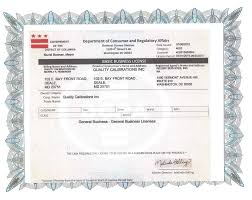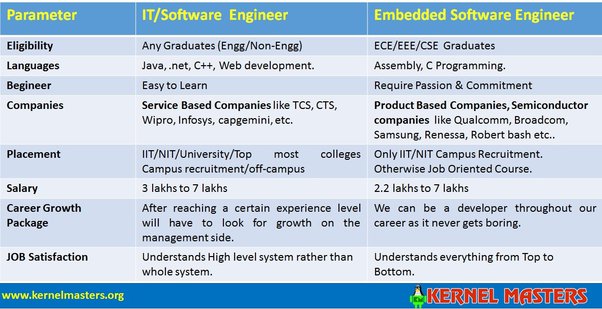
Accounting 101 lessons are useful for those who do not have any previous knowledge. This course can also be used as a refresher for people who already have some accounting knowledge. The topics covered include net worth, accounts receivable and double-entry accounting. You can then apply these concepts to your own business after you have learned them.
Accounting with double-entry
Double-entry is the most basic method for recording business transactions. It involves adjusting the balances of accounts in a particular way to reflect their value and to maintain a balance between assets and liabilities. This uses the concept that an asset and liability account. The liability represents the amount owed and the asset represents cash received.
This method is also much more accurate. It is ideal for small businesses looking to obtain loans, or organizations who want to keep accurate financial records. The two accounts must keep track on the company's progress. Each business transaction must be documented in one account. Each account must contain debits and credit equal to the total assets and liabilities plus equity.
Accounts receivable
The money a company owes customers to pay its accounts receivable is called "Accounts Receivable". This involves invoicing customers, pursuing payment and following up on payments. One example is when a furniture manufacturer delivers furniture and records the payment due under accounts receivable. The furniture manufacturer then waits for the retail store to pay the manufacturer.

Make sure you clearly display your payment terms on your invoices so that your customers can make timely payments. If customers don't know when they need to pay, they are not likely to make payments. Customers can be reminded when accounts are past due by using accounts receivable reporting.
Net worth
Net worth refers to the sum of all a company's assets or liabilities. Assets are property, cash, inventory, machinery, buildings, loans, and loans made. The liabilities, on the contrary, are all the company's outstanding debts. These two items must be present in order to calculate net wealth.
A positive networth is a sign that a company has a sound financial position. Negative net worth can be a sign of financial trouble. A decrease in net worth can have significant implications on a person's overall financial well-being. A couple that is newly married has a $300,000. house, $50,000 worth of investments and a $10,000 car loan. The couple's net worth is positive, while their liabilities are negative.
Accounting basics
No matter the type of business, accounting basics are essential. These concepts allow you to create an accurate financial statement. It is important to be able to recognize revenues as well as expenses when they occur. Amounts are not recognized immediately after they are received in cash-based accounting. Accrual accounting records transactions as they occur.
These accounting principles make financial statements easier to understand. If you use one currency for purchases or transactions, you'll understand your financial statements better. If your business is located in the U.S., you should report transactions in the U.S. dollars. Similarly, if you're based in Japan, you would convert your transactions from the Japanese Yen to U.S. dollars.

The benefits of accounting basics
Accounting basics can help you gain a better understanding about how the business world operates. This will not only help you make smarter financial decisions but also allow you to negotiate better deals. It will also help you make better financial decisions by understanding how to interpret financial statements.
Doing your research is the best way you can learn accounting. Assignments can be found in textbooks, study guide, or in the class notes. Learning can be tiring so it is important to know how you can make the most of your time studying. Studying is made easier by purchasing textbooks that you have read and then completing them.
FAQ
How can I select a consultant?
Three main factors should be considered:
-
Experience - How many years of experience is this consultant? Are you a beginner or an expert? Does her resume demonstrate that she has the required skills and knowledge
-
Education - What did this person study in school? Did he/she go on to further education after graduation? Are we able to see evidence of his/her learning through the way he/she writes
-
Personality - Are we attracted to this person? Would we prefer him/her working for us?
-
These questions will help us determine if the consultant is right to meet our needs. If there are no clear answers, then it might be worth an initial interview to learn more about the candidate.
How much do consultants earn?
Some consultants earn more than $100k per year, but most consultants earn between $25 and $50k. An average consultant salary is $39,000 This includes both salaried and hourly consultants.
Salary depends upon experience, location, industry and type of contract (contractor/employee). It can also depend on whether the consultant has their own office or works remotely.
How much does it cost for a consultant to be hired?
Many factors go into determining how much it costs to hire a consultant. These include:
-
Project size
-
Time frame
-
Scope of work
-
Fees
-
Deliverables
-
Other considerations such as experience level, location, etc.
Is it necessary to pay taxes on consulting income
Yes. Taxes will be charged on consulting profits. The amount of your earnings per year will determine the tax payable.
If you're self employed, you can deduct expenses beyond your salary.
But you won't be able to deduct interest payments on loans, vehicle depreciation, or the cost of equipment.
You cannot claim back less than PS10,000 in a given year.
But even if you're earning more than this threshold, you might still be taxed depending on whether you're classed as a contractor or employee.
Employers are taxed via PAYE (pay as your earn), and contractors through VAT.
What are the different types of jobs available for consultants?
Consultant work requires a deep understanding of business strategy, operations, and other aspects. Understanding how businesses work and their place in society is also essential.
You must have excellent communication skills as well as the ability to think critically in order to be a consultant.
Consultants must be adaptable because they may be asked to do different tasks at different times. They must be able and willing to adapt quickly to changes in direction.
They should be willing to travel extensively on behalf of their clients. They may be required to travel all over the globe for this type of work.
They need to be able and able to manage pressure and stress. Consultants might sometimes have to meet tight deadlines.
Consultants might be required to work long hours. You may not get overtime pay.
Statistics
- So, if you help your clients increase their sales by 33%, then use a word like “revolution” instead of “increase.” (consultingsuccess.com)
- 67% of consultants start their consulting businesses after quitting their jobs, while 33% start while they're still at their jobs. (consultingsuccess.com)
- Over 62% of consultants were dissatisfied with their former jobs before starting their consulting business. (consultingsuccess.com)
- My 10 years of experience and 6-step program have helped over 20 clients boost their sales by an average of 33% in 6 months. (consultingsuccess.com)
- Over 50% of consultants get their first consulting client through a referral from their network. (consultingsuccess.com)
External Links
How To
What's a typical day like for a Consultant?
Depending on what type of work you do, your typical day may vary. But, in general, you will spend your time researching, planning and meeting new clients.
You will have many meetings where clients and you can discuss their issues. These meetings can be done over the phone or via email.
Also, proposals are documents that outline your ideas or plans for clients. These proposals will be presented to clients by you and a mentor.
After all the preparation, you'll need to start creating content. Writing articles, designing websites, editing photos or conducting interviews are just some of the options.
Based on the scope and complexity of the project you may need research to obtain relevant statistics. You might need to determine how many customers you have, and whether they buy more than one product.
Once you have all the information needed, it is time for clients to see your findings. You may give your findings orally or in written form.
Finally, you must follow up with clients after the initial consultation. For example, you might call them periodically to see how things are going or send emails asking them to confirm that they received your proposal.
This process takes time, but it's important to ensure that you stay focused and maintain good relationships with clients.